by Jenn Riley, Associate Dean, Strategic Initiatives
Indigenous Awareness Weeks, an annual celebration hosted by the Office of Indigenous Initiatives, showcases Indigenous academics, artists, and community members. The McGill University Libraires are participating in this year’s installment, held September 19 – October 2, through events, exhibits, our collections, and our plans for the future.
On Tuesday, September 24, the Libraries’ Visual Arts Collection (VAC) partnered with the Office of Indigenous Initiatives to welcome Scots-Lakota Scholar Dr. Carmen Robertson (Carleton University) and Anishinaabe (Northern Ontario, Obuckimaakang) artist-educator and musician Rob Spade (McGill University) in “Centering Ojibwe Anishinaabe Art.” Dr. Robertson opened the session by speaking about her research as a Canada Research Chair in North American Indigenous Visual and Material Culture with a talk entitled “Visiting and the Art of Norval Morriseau.” Professor Spade closed by describing his personal experiences, “Reflecting on Three Decades of My Art as an Ojibweinini.” For those who missed the session, a link to the recording is available below.
Exhibits, Virtual Tours, and Displays
The VAC actively seeks to add Indigenous artwork to McGill’s collection, which features First Nations and Inuit art. A selection of materials from our current collections can be seen in an exhibit in the lobby of the McLennan Library building entitled BEAD, PAINT, CARVE, on view through October 31. In addition, the VAC offers an interactive map that provides an overview of the curated spaces and other installations that feature Indigenous art at the University. Users are encouraged to access this virtual tour as a guide to the physical locations to appreciate these artworks first-hand.
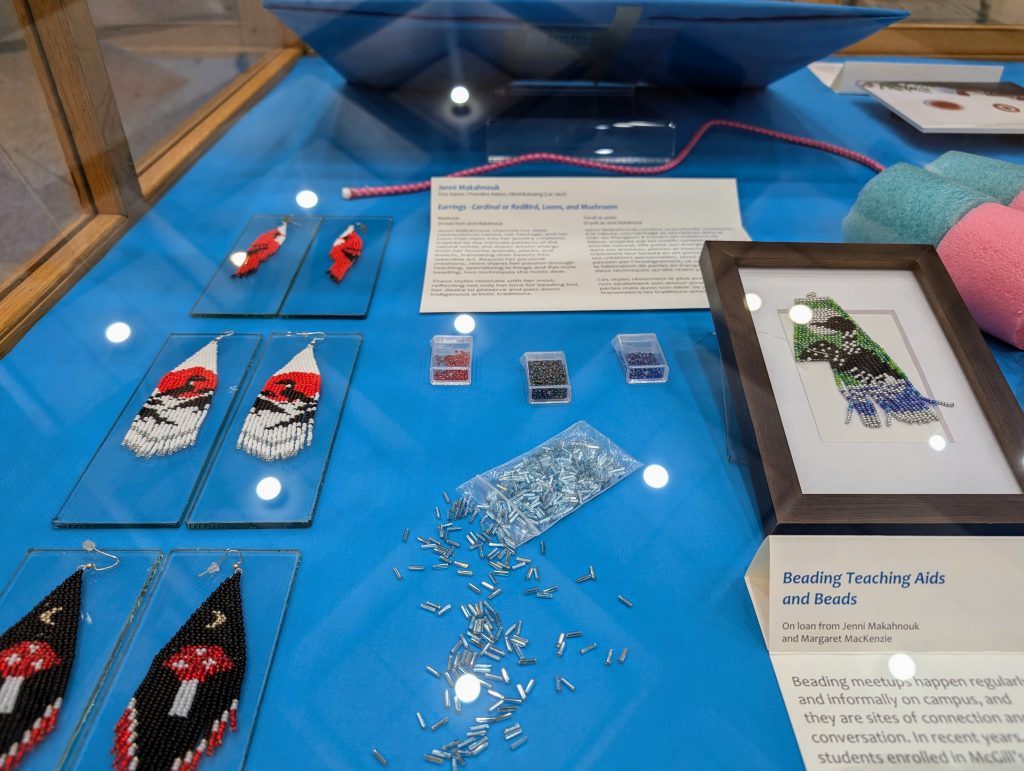
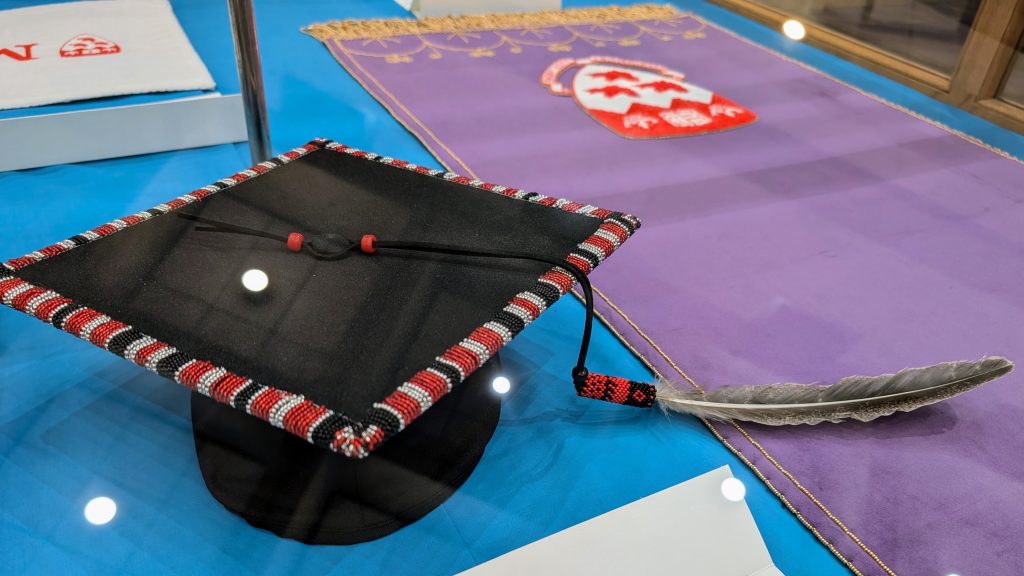
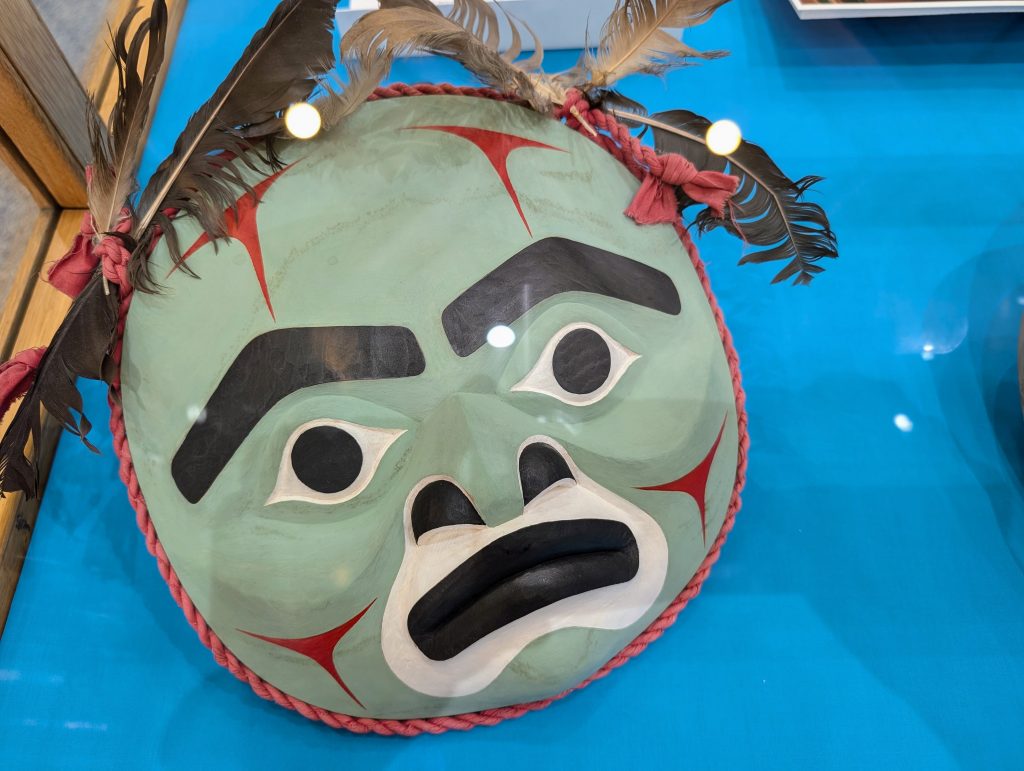
In addition, the reading exhibit Indigenous Voices, featuring works by Indigenous people, is on display nearby on the main floor of Redpath Library Building.
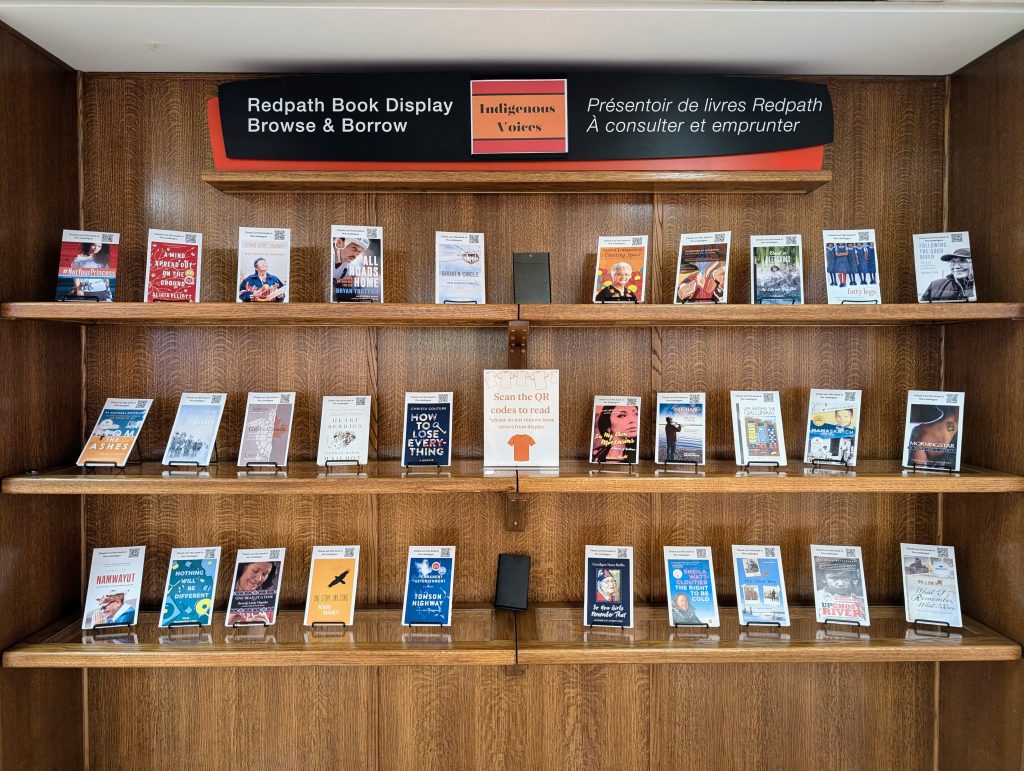
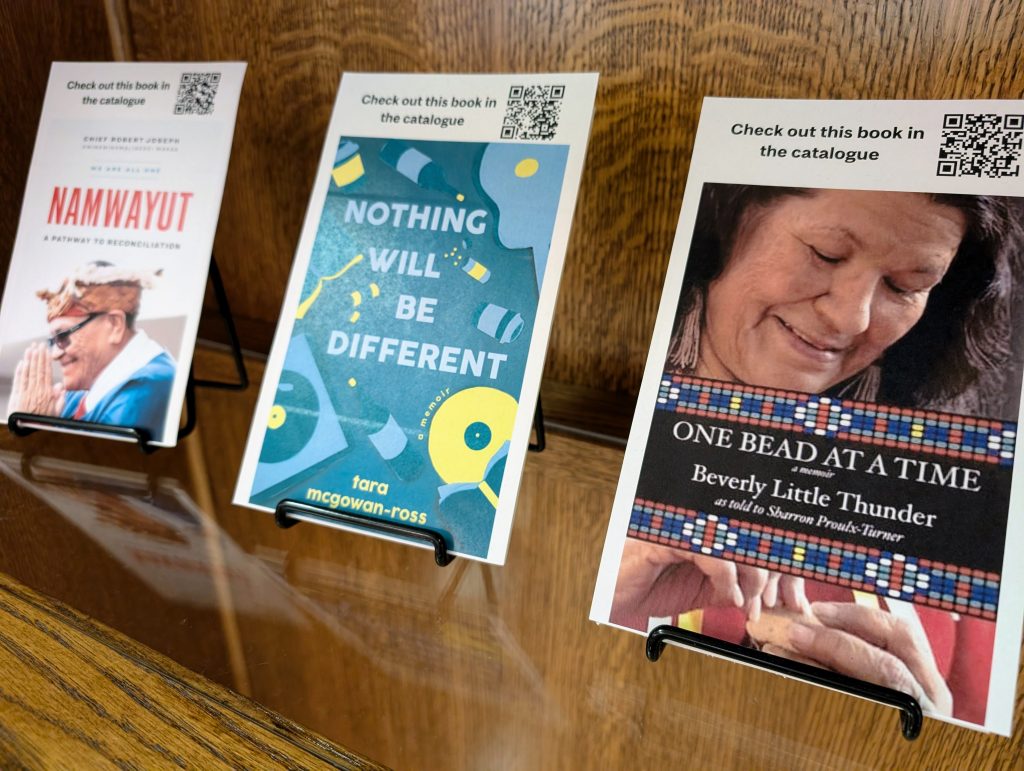
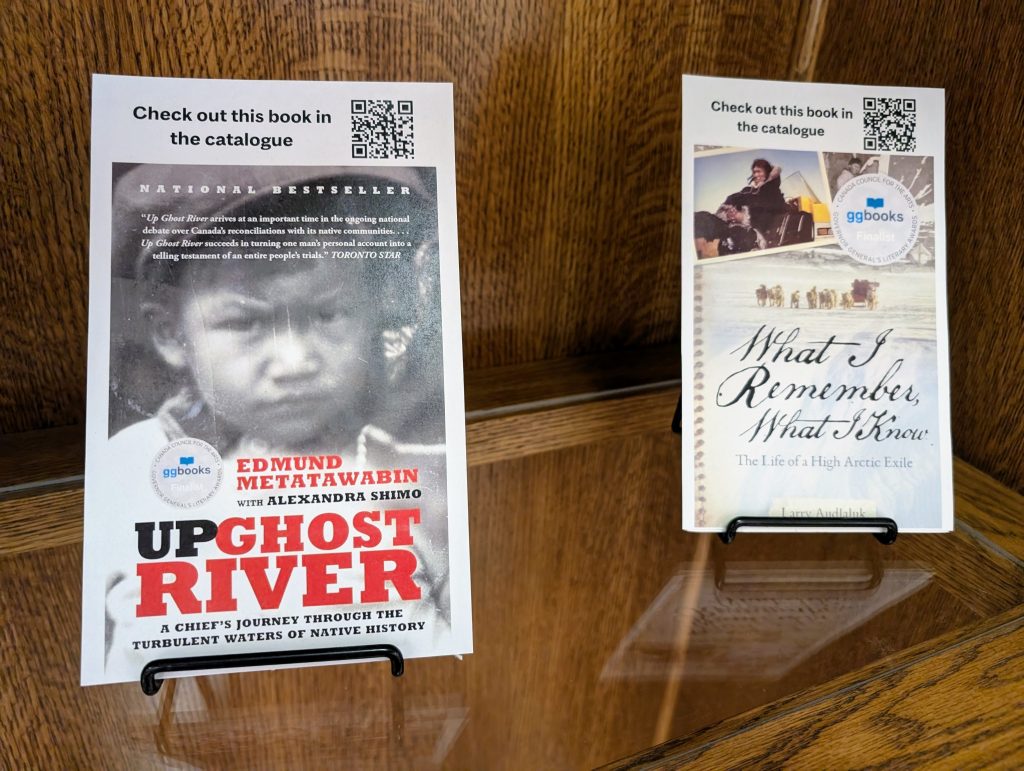
Guides
Several guides on the Library’s web site highlight additional materials in our collection and beyond related to indigeneity, including the Indigenous Studies guide and the Indigenous Health guide. These guides feature resources such as research journals focusing on health and well-being of Indigenous Peoples, guidance for finding translators for Indigenous medical patients, data sovereignty for First Nations, Indigenous community newspapers, Indigenous-made films, and links to Truth & Reconciliation Commission and residential school materials. They also include resources in French.
McGill Libraries Indigenous Initiatives Action Plan
Finally, we are proud to announce our new McGill University Libraries Indigenous Initiatives Action Plan 2024. This plan maps out our near-term efforts to embed Indigenous voices, creative work, and history into the work of the Libraries and advance down the path towards reconciliation. This Action Plan outlines the Libraries vision for Indigenous Initiatives, describes our commitment to reconciliation, and presents eleven projects that we are undertaking to increase representation by and knowledge of Indigenous Peoples in our collections, services, spaces, and workforce. The Action Plan includes a mapping of our projects to the Truth and Reconciliation Commission’s 94 Calls to Action and McGill University’s 52 Calls to Action, directly demonstrating how we are contributing to both Truth and Reconciliation.
As we continue to engage with and learn from Indigenous communities, McGill University Libraries remains dedicated to fostering a space for meaningful dialogue, education, and representation. We invite you to explore our collections, exhibits, and resources, and to join us in our journey towards reconciliation. Together, we can create a more inclusive and respectful future, rooted in the shared knowledge and history of all peoples.












Leave a Reply
You must be logged in to post a comment.